When I have friends or family members visiting me, they often arrive with the words “Sarah, I was SOO looking forward to coming here and getting out for a few days. I really just need to relax, hang out at the beach and enjoy some sangrias with you!”. Don’t get me wrong, I LOVE these days. I get to spend quality time with my friends while I also see how they finally take the time to rest and recharge.
Throughout these days – and often while having those sangrias – we end up talking about what’s going on in their lives that get them SO mentally exhausted. Often it comes down to having their days filled with work, tasks and maybe care for children or parents. There is barely any time to breathe and relax. One friend told me that when working from home, she regularly skips lunch breaks, accidentally. Sometimes her husband comes home in the evening finding her untouched meal in the microwave; only then does she even realise that she didn’t have lunch.
Stories like these remind me of my own time in academia. As a lab-based scientist, I used to work about 10 hours per day, plus most weekends a minimum of another 4 hours for at least one day. I came home completely exhausted from work, not able to talk, read or exercise. It wasn’t only about the length of time I was working, but more about the amount. I pretty much spent all the time in the lab doing things, without giving myself any break, no time to rest, no time to recharge, sometimes as little as 15min-lunch breaks.
I remember how I was also always looking forward to that one-day weekend, to any holiday that came up (gladly, in Spain there are many!), any trip that I had planned. I NEEDED the rest, I needed to recharge my batteries, to disconnect.
Taking sunny breaks to replenish energy
During the Covid-house arrest, I realised that I couldn’t just wait for the next big break or holiday to recharge my batteries. I didn’t want my energy levels to go all the way down and then hope that the next break allowed me to fully recharge. It would mean that vacations only had one function: giving me time to relax and recharge. However, I wanted more from life than that.
I came to the conclusion, that I wanted a life in which my energy levels are constantly high or at least high enough to work and do the things that I want to do. Instead of waiting for the end of a working day, weekend or long vacation, I decided to give my brain regular periods to recharge. This meant implementing breaks during which I would not stimulate my brain with a task that requires a lot of mental energy. So, I came up with some sort of routine, which is why my days usually look like this:
- I take a 5-10 min break every hour
- I have one hour of lunch break
- I never work more than 6 hours a day
During my breaks, I move away from my laptop and do at least two of the following activities:
- Stretch my back or do a short Yoga sequence
- Eat a healthy snack
- Drink a lot of water
- Meditate
- Clean or tidy up something in the flat, do laundry, water plants, etc
- Leave a friend or family member a short message saying hi or sharing something from my day

This routine allows me to do highly focused work in a relaxing way. I get a lot of thinking and working done while, at the end of the day, my brain is not entirely exhausted. I am still able to read a book in the evening or talk to a friend or get some admin tasks done; things, I just couldn’t do while working as a scientist because my brain was constantly drained.
This also means that now, I don’t need that classic vacation or week-long break from work, because I am giving my brain the breaks it needs. I’m still enjoying one or two days of no or little brain-work tasks but after that I already feel super refreshed and regained the mental energy for deep work.
Work breaks to rescue the day
Of course, I am fully aware that this way of working is not entirely possible as a scientist. However, I am convinced that by giving yourself a few breaks throughout the day, you are doing your brain and your body a real favour.
For example, studies showed that even a 3-min break is already efficient for your central nervous system to relax and for your brain to get some distance to the task you’re working on. This time allows your brain to look at the task from a different perspective which can stimulate new ideas. It might even come up with alternative solutions.
Another study looked at the quality of breaks and found that people who took longer meal breaks filed fewer health complaints. On the other hand, skipping work breaks led to increased tiredness, faintness, fatigue as well as physical and emotional exhaustion.
Interestingly, also the nature of the break matters. Physical breaks, including going for a walk, stretching or even a 10-min aerobic exercise are more efficient than sedentary breaks, surfing the web or listening to music. When done in group settings, physical breaks were even shown to improve personal relationships together with mental health.
Especially breathing exercises give your brain another target to focus on and create distance from the task you’re currently doing. Daily breathing periods of deep belly breathing, diaphragmatic or abdominal breathing were shown to reduce blood pressure, stress and anxiety. Together with mindful meditation, focused breathing is a proven way to calm your mind and become more self-aware. And a calm mind free of distractions like stress and anxiety is the source of high productivity, creativity and efficiency.

How to implement breaks in a lab day
Yes, I know that as a lab-based scientist, it might be difficult to think about breaks. However, in my opinion, it comes down to creating habits and integrating them into your daily routine. By getting used to having breaks during certain periods, processes or experiments, the task itself will already feel less tedious to you. You might even look forward to an annoying task if it allows you to enjoy an energising break.
So, here are some ideas of when to implement breaks in your lab or office days:
- While waiting for short machine runs (for example the centrifuge, microwave, vortex, etc)
- While waiting for a chemical reaction to happen
- While waiting for your code to run, a download to finish, software to install, your computer to reboot
- After having finished writing a section of your paper, grant application, thesis, etc
- After an energy-draining meeting with your supervisor
- While having lunch (!)
And these are some activities that you can do during your breaks:
- Close your eyes, take 5 to 10 deep breaths and focus on your breathing
- Close your eyes and listen to the sound of the machine you’re waiting for
- Count the seconds backwards that you are waiting, focusing on the numbers
- Stretch your back, your neck, your shoulders, your arms, your fingers, feeling how your body relaxes
- Do 10 squats and stretch your legs
- Listen to your favourite song singing it loudly in your head
- Doodle
- Go for a walk
- Talk to a colleague about a non-work-related topic
- Eat a healthy snack and focus on the taste of the food
- Drink some water and feel how it refreshes you

As you can see, you have several opportunities to take breaks during your lab or office days. It is just a matter of effectively using your time. Resting activities that allow your brain to relax, recharge and wander give you a lot more energy than stimulating activities like reading emails, browsing the web or scrolling through social media.
You will probably realise that after giving your brain a well-deserved meditative rest, it will be easier to focus on tasks, brainstorm or find solutions to your research problems. Hence, by taking more breaks of high quality, you will be more productive, achieve more, get better results and become an excellent researcher.
So, when is your next break?
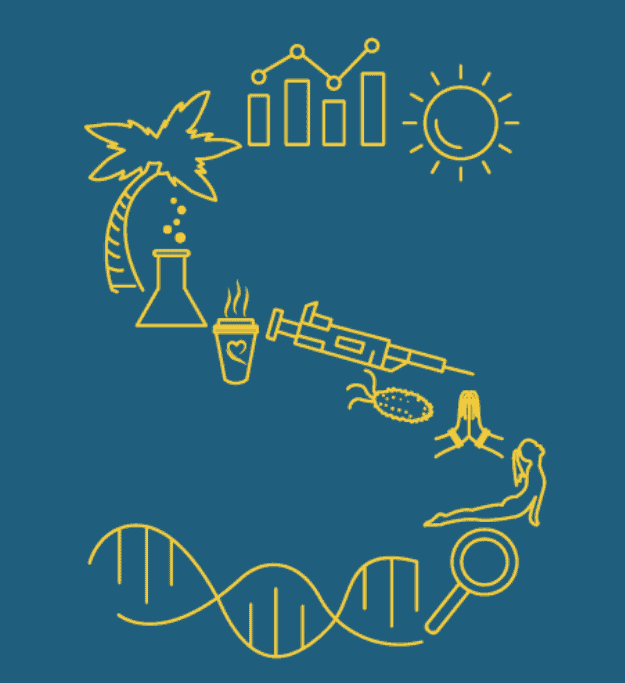
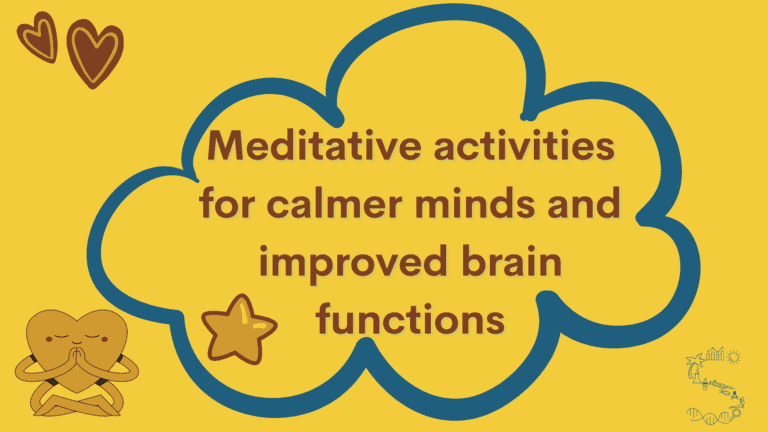
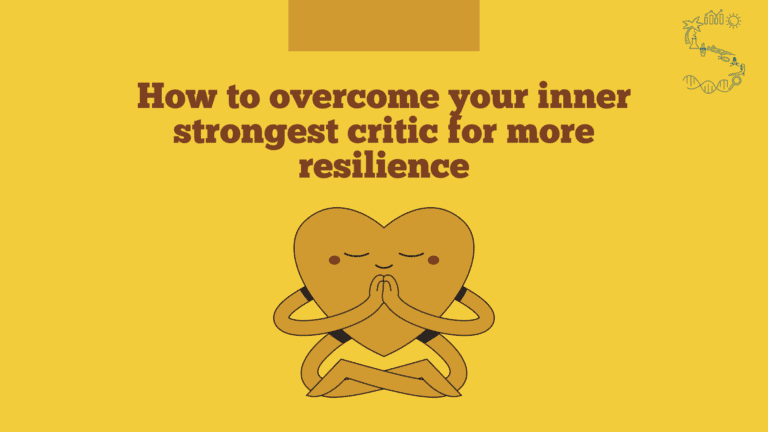
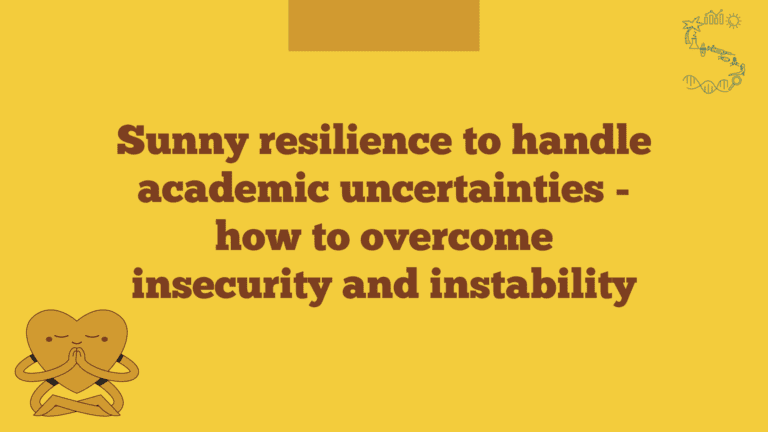
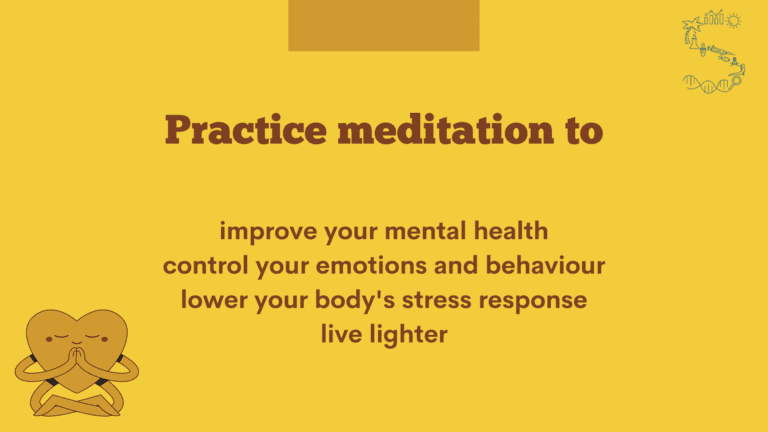
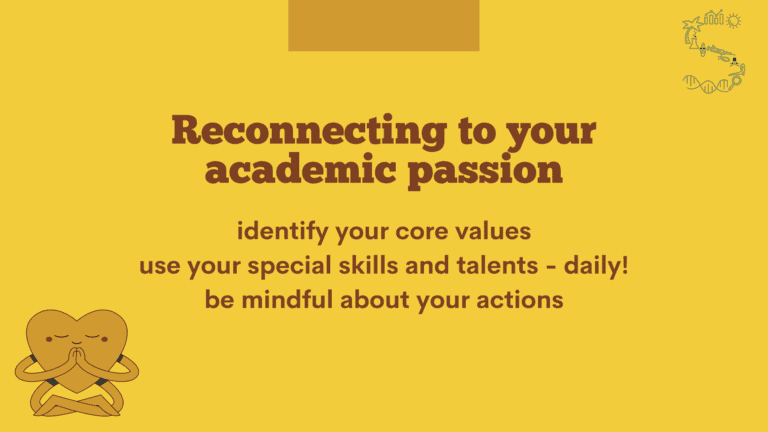
One Response